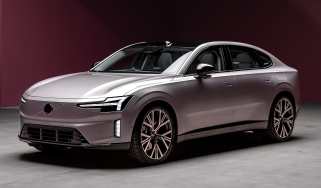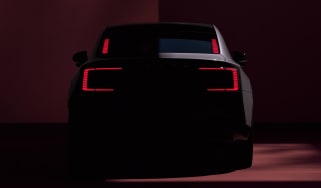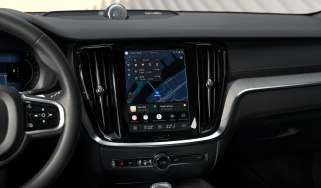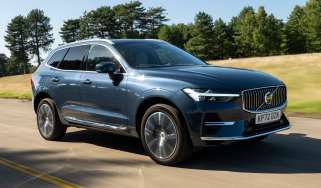Volvo announces efficient new engine range
Powerful Volvo D4 diesel engine is now capable of less than 100g/km CO2
A new range of smaller and more efficient Volvo engines was announced back in August, and the company has now confirmed it will include a powerful diesel engine capable of less than 100g/km of CO2.
The new 179bhp D4 turbo diesel engine available in the Volvo S60 will manage an impressive 74.3mpg and emit just 99g/km of CO2. The more practical Volvo V60 estate is also capable of sub-100g/km CO2 emissions – but only when fitted with eco-friendly 16 or 17-inch wheels. Upgrade to larger 18 or 19-inch wheels and you’ll have to sacrifice some of those rock-bottom running costs.
However, these changes make the D4 the most economical engine in the S60 and V60 range – even more so than the cheaper D2 and D3 diesels. Those engines will remain unchanged for the time being, with updates due over the next couple of years.
In addition to the new D4 diesel, the Volvo S60, Volvo V60 and Volvo XC60 will be the first cars in the model range to get the 302bhp four-cylinder T6 and 242bhp T5 petrol engines. Although these are smaller than the engines they replace, they use both a turbocharger and a supercharger to give the feel of a larger, more powerful engine. The Volvo S60 T6 will accelerate from 0-62mph in just 5.9 seconds – putting it on a par with the BMW 328i.
Both the T5 petrol and D4 diesel will also be available in the Volvo V70, Volvo XC70 and Volvo S80 models, and all will be available with the choice of a new eight-speed automatic or a six-speed manual gearbox. Both have been tuned with fuel economy in mind, and even the petrol engine will be more efficient than its predecessor.
The new series of engines is called the Drive-E range, with engines that will be modified for performance or economy depending on the model. As the Drive-E name suggests, these new engines are equipped to work with electric motors in the future and thanks to their compact size, the batteries can be fitted into a car more easily. What’s more, the key linkages are already in place to pair up an electric motor.
Every engine in the range uses clever technology to improve both power and driveability, with the diesels using a new system called i-Art, which monitors the amount of fuel needed to improve economy without sacrificing performance.
Derek Crabb, Vice President of Powertrain Engineering at Volvo, said: "The power you get from an engine has nothing to do with its size; it is about the amount of air that you can get to flow through it. You can also make an engine more efficient if you make it smaller. So, if you can get more air through a smaller engine, you can still get the same power but at better efficiency.”
Prices for the new engines will be announced soon, so make sure you bookmark this page for all the info as and when it happens.
For the full Volvo range, visit the CarBuyer Volvo reviews page.
Recommended

New Volvo ES90: flagship electric saloon unveiled with 435-mile range

All-new Volvo ES90 electric saloon to get 435-mile range

Infotainment overhaul coming to Volvos this year – and it’s free
Most Popular
Tips & advice

Car dashboard warning lights: what does each symbol mean?

Electric car charging stations: public networks, charger types, apps and maps







